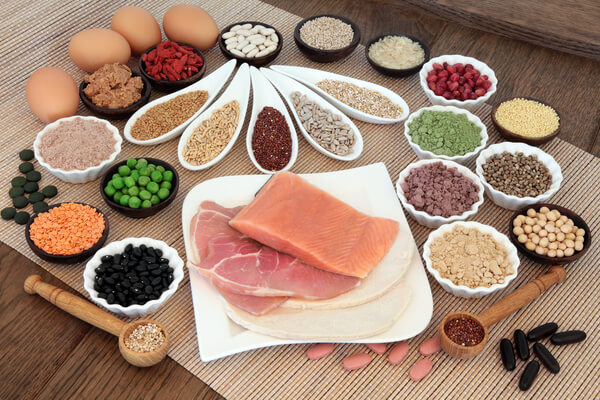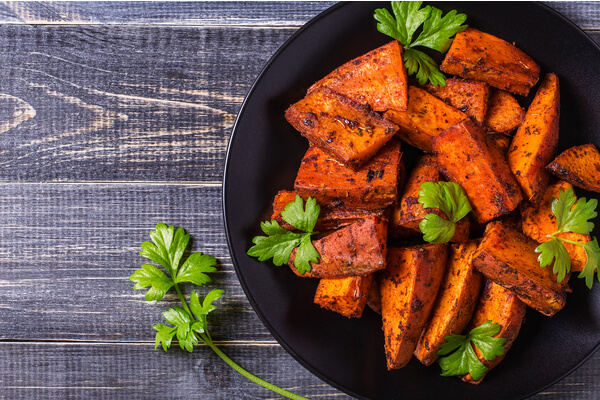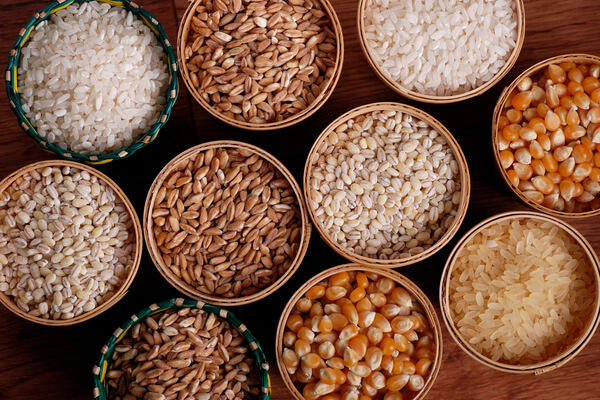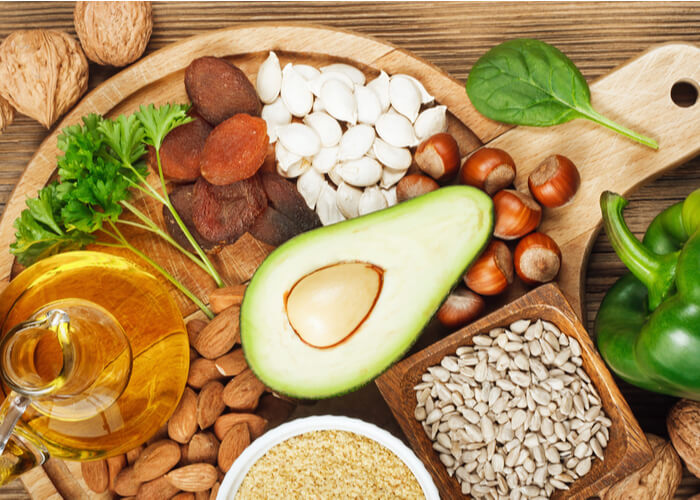You can surely reduce weight with the number of fad diets on the internet that work towards shedding the kgs rapidly. However, they leave you feeling deprived and hungry at the same time, even leading to health complications. What good will losing weight do if you only regain it later? To permanently keep extra kilograms off, it is best to lose weight gradually.
As many experts say, you can lose weight without going on a “diet.” Instead, the key is bringing simple changes in your lifestyle. The idea is never to starve yourself but to do things in the right amount. Also, rather than going cold turkey on everything, the right portion of everything is the answer. While you are at it, make sure to keep a water bottle by your side, one that will help you stay hydrated while you are concentrating on losing those calories. Along with this, there are also other strategies for losing weight, and these strategies are backed up with science and evidence. Here are few weight loss ideas for a healthy you.
1. Eat Breakfast Every Day

One habit that is quite common among people who have lost weight and maintained it the same way is having breakfast every day. Most people think skipping breakfast is the right way to cut calories, but that only results in consuming more calories than they intended to in the first place. Studies have shown that people who have their breakfast have lower BMIs than those who skip and perform better at school or the boardroom. Try having a bowl of whole-grain cereal topped with fruits and low-fat dairy for a quick and healthy start to your day.
2. Choose Liquid Calories Wisely

Sweetened drinks can pile on the calories and don’t even reduce hunger as solid foods do. Whenever you feel thirsty, satisfy it by drinking water, a small serving of 100% fruit juice, sparkling water with citrus, or low-fat milk. You can also try a tumbler glass of low-calorie vegetable juice in the morning or between meals to stay full. Don’t forget to carry a water bottle wherever you go to avoid the temptation of quenching your thirst with a sugary drink or a soda.
3. Eat More Produce

Consuming lots of high-volume, low-calorie fruits and vegetables crowd out foods higher in calories and fats. Try starting lunch or dinner with a bowl of broth-based soup or vegetable salad, as adults need to have 7-13 cups of produce daily. So, stock your kitchen abundantly with fruits and vegetables, and at every meal or snack, include a few servings. Your diet will then be enriched with vitamins, minerals, fiber, and phytonutrients. If you keep filling yourself up on super-nutritious produce, you won’t be craving processed or sugar-based foods.
4. Have Protein at Every Meal and Snack

Adding a low-fat or lean protein source to every meal and snack can keep you feeling full longer so that you are less likely to overeat. Also, try low-fat yogurt, peanut butter, a small portion of nuts, lean meats, eggs, or beans. Experts also advise eating small, frequent meals and snacks to keep your blood sugar levels under control and to avoid over-indulging.
5. Switch to Lighter Alternatives

Whenever possible, use the low-fat versions of dairy products, salad dressings, mayonnaise, and other products. You can trim calories effortlessly when you use low-fat and lighter products. Other smart substitutions are, using salsa or hummus as a dip, spread sandwiches with mustard instead of mayo, eating plain roasted sweet potatoes instead of loaded white potatoes, using skimmed milk instead of cream in your coffee, avoiding the cheese on sandwiches, etc.
6. Tracking your diet and exercise
![]()
If someone wants to lose weight, they need to be aware of everything they eat and drink every day. The most effective way to do this is to record every item they consume in either a journal or an online food tracker. Health apps and calorie tracker apps have made quite a space on everyone’s smartphone over these years, and this is not without reason. Tracking weight loss progress and physical activity on the go can be an effective way of managing weight. One study also found that consistent tracking of physical activity can help with weight loss. Even a device as simple as the pedometer can prove to be useful as a weight-loss tool.
7. Trim Portions

Even if you do nothing else but cut down your portions by 10%-20%, you can lose weight. This is because most of the portions served both at home and in restaurants are bigger than you need. Pull out the measuring cups to get an idea of your usual portion sizes, and work on cutting them down. Get immediate portion control by using small plates, bowls, and cups.
8. Control Your Environments

Another simple strategy is controlling your environment, everything from filling your kitchen with lots of healthy options to choosing healthy restaurants. This means avoiding the temptation by staying away from restaurants that serve unhealthy and greasy food. When you go to a party, have a healthy snack before so that you won’t be starving, and stay selective when you fill your plate at the buffet. Before going back for more food, at least wait for 15 minutes and have a big glass of water.
9. Go for the Grain

When you replace whole grains with refined grains like cakes, white bread, and cookies, you add much-needed fiber and fill up faster so that you are more likely to eat a reasonable portion. Choose whole-wheat pasta and bread, bran flakes, whole-rye crackers, brown rice, and popcorn.
10. Get a Good Night’s Sleep

A lot of studies have shown that getting less than 5–6 hours of sleep a night is associated with a bigger incidence of obesity. There are plenty of reasons behind this. Research suggests that insufficient or poor-quality sleep slows down the process of converting calories to energy in the body, which is called metabolism. When metabolism is less effective, the body might store unused energy as fat. Additionally, poor sleep can increase the production of cortisol and insulin, which prompt fat storage. How long someone sleeps also has an effect on the regulation of the appetite-controlling hormones ghrelin and leptin. Leptin is responsible for sending signals of fullness to the brain.
Conclusion
Losing weight cannot be an overnight miracle, but following consistent patterns can healthily ensure weight loss. These tips can easily be incorporated into your routine without you having to go out of your way. There are no quick fixes in a weight loss programme. Take less stress as it can be an indirect cause of weight gain. Gentle reminder: A few health issues make it impossible to lose weight. Hence the goal must be to maintain a healthy lifestyle without worrying too much about it. So, go and achieve that healthier version of yourself. Ensure you talk to your physician before you plan your weight loss journey.








Recent Comments